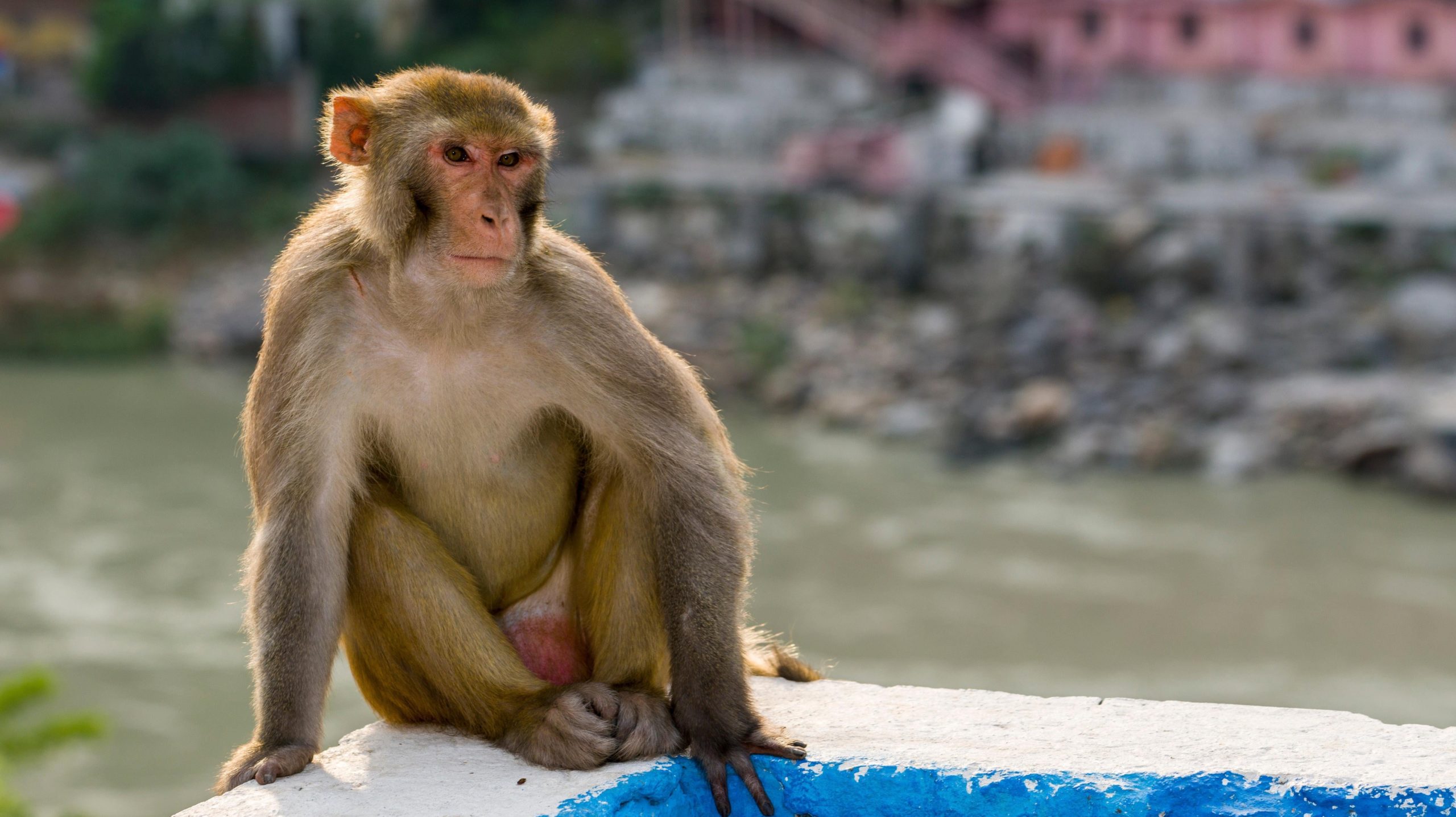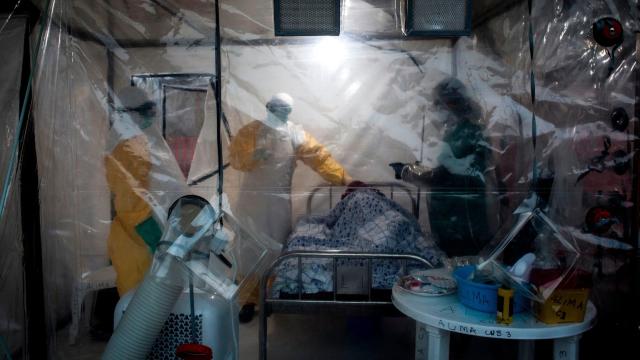New research in animals seems to confirm the frightening resilience of the Ebola virus. The study found that the virus could routinely persist in the brains of monkeys following treatment with monoclonal antibodies, even sometimes resurfacing weeks later to cause acute illness and death. The findings, the authors say, highlight the need to monitor the long-term health of survivors even after outbreaks have ended and to develop newer treatments that can overcome this persistence.
In the wake of the 2014-2016 Ebola outbreak in West Africa — the largest in recorded history and one that left 11,000 people dead — evidence began to emerge that Ebola could linger in the bodies of survivors after they recovered. Often, these hiding spots were found in parts of the body where the immune system is intentionally less vigilant, such as the eyes, brain, and testes. More recently, it’s become clear that survivors with persistent infections can reignite new outbreaks years later, leaving open another way for the normally zoonotic disease (originally spread from animals to humans) to cause trouble.

According to study author Xiankun Zeng, an infectious disease researcher at the United States Army Medical Research Institute of Infectious Diseases, little is known about where exactly Ebola hides in the body and how its presence may affect survivors, particularly in people who are given the monoclonal antibodies that have become a standard treatment for Ebola.
To better understand the virus’s stealthy abilities, Zeng and his team deliberately infected rhesus macaques with Ebola, then treated them with monoclonal antibodies. In those that recovered and survived the infection, they looked for the virus throughout the body. The antibody-treated monkeys seemed to flush the virus out of almost every organ, save one: the brain.
About 20% of the treated monkeys still had traces of Ebola in their brain, specifically in the ventricular system, where cerebrospinal fluid is produced, circulated, and contained, Zeng said. The virus hid inside macrophages, the large immune cells that recognise, target, and sometimes eat germs, and its presence in the brain was often accompanied by tissue damage and inflammation. In two of these cases, the virus appeared to stage a full-on comeback, causing acute neurological symptoms associated with Ebola infection and death weeks after the initial recovery.
“Our study suggests the need for long-term follow-up of Ebola virus disease survivors, including survivors treated by therapeutic antibodies” in order to prevent the reemergence of disease, Zeng told Gizmodo in an email. The findings were published Wednesday in Science Translational Medicine.
While this study didn’t involve humans, there have been reported cases of human survivors treated with antibodies who later became severely ill or died from a relapse of the infection that likely started in the brain. Other research has found that some survivors can develop severe long-term neurological symptoms, which could be tied to persistent infection.
Zeng does note that humanity is in a much better position to contain Ebola outbreaks than it was several years ago. There are now two available Ebola vaccines, and approved monoclonal antibodies do appear to significantly reduce the risk of dying from an infection that can be up to 90% fatal otherwise. But these findings and others suggest that more can still be done to protect survivors and communities from Ebola, such as the development of Ebola-specific antivirals.
“As immune-privileged organs, such as the brain, eyes, and testes, are less accessible to monoclonal antibody-based therapeutics, combination therapies of monoclonal antibodies and antiviral drugs with better tissue penetration may help to prevent and clear Ebola virus persistence,” Zeng said.
